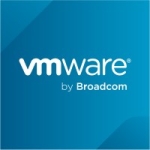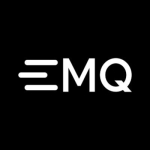What is our primary use case?
Our use cases for IBM MQ involve share markets.
In this organization, we are not using many of the features because we have a very small infrastructure. In my previous organizations, I used many of the components including AMS. However, here, we are just using it as a messaging solution and not any of the other components.
What is most valuable?
The MQ appliance has very good performance.
What needs improvement?
The user interface should be easier to use.
The user interface should be enhanced to include more monitoring features and other metrics. The metrics should include not only those from the IBM MQ point of view but also CPU and memory utilization. These kinds of features would be really helpful when we have a large infrastructure. Right now, this limits us from using the product.
In general, the user interface should be more catchy, to entice users.
IBM should promote the use of the MQ appliance because the speed and performance are superior when compared to traditional ways of using the product.
If IBM were to release as least some limited features for MQ as open-source, then it would be great because people will migrate to this solution instead of choosing open-source products like Apache Kafka or RabbitMQ.
For how long have I used the solution?
I have been working with IBM MQ for almost 13 years across different organizations. I began working with version 5.3 and am currently using version 9.
Buyer's Guide
IBM MQ
January 2026
Learn what your peers think about IBM MQ. Get advice and tips from experienced pros sharing their opinions. Updated: January 2026.
881,821 professionals have used our research since 2012.
What do I think about the stability of the solution?
The stability is absolutely perfect when it is running on AIX. However, I have experienced some issues with certain Linux distributions. With AIX, I have not had any problems with IBM MQ. With other flavors of Linux, there is some instability whereby the MQ configuration parameters are not giving the proper information. From this, I have concluded that the stability of MQ depends on the Linux distribution that it is running on.
What do I think about the scalability of the solution?
The number of users in my current organization is six or seven. This is the number of applications that we have. This is not an extensive use of the product but we do plan to increase usage in the future.
In my previous organization, our use was more extensive. We had between 700 and 710 users.
This product scales and the number of users depends on the industry, as well as the financial strengths that the organization has.
How are customer service and support?
The technical support from IBM is always reachable.
Internally, we provide technical support to our users. This is possible because our team is only six or seven users.
How was the initial setup?
This initial setup is not complex at all. Deploying it was very easy.
What about the implementation team?
Limited staff is required to maintain this solution because of its stability.
What's my experience with pricing, setup cost, and licensing?
The licensing fees are paid quarterly and they are expensive. This is something that I have heard from all of the organizations that I have worked with.
Which other solutions did I evaluate?
I have evaluated Apache Kafka and RabbitMQ because of the open-source features and benefits. The open-source aspect is an advantage. I have found that not many users choose IBM MQ, even though it is stable, because of financial constraints.
If IBM were to release MQ or at least some limited version as open-source, it would become more popular. People would choose it instead of implementing other products, or other streaming solutions. This is what people are trying to do with DevOps.
IBM MQ is much more stable than these other products, although the rest of them work well with cloud providers such as AWS.
What other advice do I have?
Overall, this is a good product. The only thing that I found complex was to build the user interface with the latest versions of IBM MQ. It was a little bit tricky to do.
I would rate this solution an eight out of ten.
Which deployment model are you using for this solution?
On-premises
Disclosure: My company does not have a business relationship with this vendor other than being a customer.
















